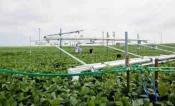
Midwest Heat Waves May Cook Crops—and Fry Harvests
Climate change–induced temperature extremes could wilt corn and soybean yields, potentially causing ripples to food supplies across the world.
By: Susan Cosier || NRDC

Did Illinois Just Unlock the Secret to Solving World Hunger?
Ending hunger worldwide may sound like a pipe dream, but researchers at the University of Illinois are making great strides in turning that wish into a reality through the genetic engineering of plants.
By: Tyne Morgan || AgWeb
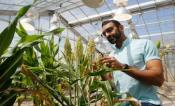
Dhruv Patel is daring plants to take a risk
Dhruv Patel is using gene editing tools to research photosynthesis, a process he first noticed in the parking lot of the Los Angeles motel his family managed.
By: Nicholas Karaviolas || Alliance for Science

RIPE's Yong-Su Jin honored as University Scholar
Yong-Su Jin, a professor of food science and human nutrition, is among the five University of Illinois Urbana-Champaign professors who have been named University Scholars in recognition of their excellence in teaching, scholarship, and service.

FAMINE FIGHTERS: From the lab to the field, U of I crop scientists are engineering a new solution to world hunger
Featuring RIPE Director Stephen Long and the RIPE project in the lead article in this quarter's Illinois Alumni Magazine, writer Ryan Ross shares the story of how our crop scientists are engineering a new solution to world hunger.
By: Ryan A. Ross || Illinois Alumni Magazine

Planet Hunger: Inside the Global Food Crisis
Putin — and greedy CEOs — are already putting 20 million people on the brink of starvation. If we don’t make big changes now, we will face mass food shortages.
By: Jeff Goodell || Rolling Stone

Celebrating Australians in International Agricultural Research
TJ Higgins was awarded the 2021 Crawford Fund Medal for his work developing GM insect-resistant cowpeas, now approved and being grown by smallholders in Nigeria and Bangladesh.
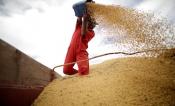
Scientists Boost Crop Performance by Engineering a Better Leaf
Researchers increased yield in soy plants by making them better at photosynthesis, the process that powers life. The findings hold promise for feeding a warming world.
By: Raymond Zhong and Clare Toeniskoetter || The New York Times

Wealthy Nations Must Support Africa in the Face of Famine and Climate Change, Says Bill Gates
In TIME Magazine, Bill Gates gives a brief overview of RIPE's innovative work with soybeans that lead to better quality seeds.
By: Aryn Baker || TIME

Four RIPE researchers recognized on 2022 ‘Highly Cited’ list
Four RIPE researchers are amongst 6,938 researchers around the world recognized by Clarivate as Highly Cited Researchers.

THOUGHT LEADERS: Future-Proofing Food Crops in a Warming Climate
AZoCleantech speaks to Amanda Cavanagh from the University of Essex about the future of agriculture in a changing climate and how bypassing a photosynthetic glitch could help us to future-proof our food crops.
By: Laura Thomson || AZo Cleantech
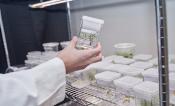
To fight climate change, a biotech firm has genetically engineered a very peppy poplar
RIPE Deputy Director Don Ort was recently featured in Science Magazine’s article on a California biotech company’s aim to create fast-growing trees that can rapidly soak up atmospheric CO2 to fight climate change.
By: Gabriel Popkin || Science
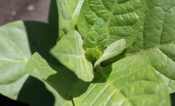
Resisting Climate Change with Photosynthesis Modified Plants
The heat is on: Bioscription's recent article about science’s mission in “resisting climate change with photosynthesis modified plants” highlights RIPE & our research done to adapt crops to warmer growing season temperatures.
By: SterlingAdmin || Bioscription

RIPE’s “More than an internship” mentorship program receives inaugural IGB DEI award
The Realizing Increased Photosynthetic Efficiency (RIPE) project’s communications team was one of two recipients in the inaugural year of the IGB Diversity, Equity, and Inclusion (DEI) Awards.
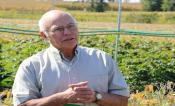
Ort awarded Jalal Aliyev Lecture Scholarship
At the recent International Congress on Photosynthesis, RIPE Deputy Director Don Ort was honored with the Jalal Aliyev Lecture Scholarship from the International Society of Photosynthesis Research.

Plant Biotech, the Underrated and Underfunded Environmental Tool
To improve environmental outcomes in agriculture, the 2023 Farm Bill needs to prioritize plant breeding and biotech research.
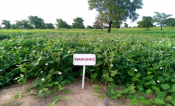
African Agriculural Technology Foudation (AATF) gets grant to monitor pod-borer resistant cowpea in Nigeria
The Australian Centre for International Agricultural Research has awarded AATF a grant of 250,000 Australian dollars for the dissemination and monitoring of the pod-borer resistant (PBR) cowpea variety in Nigeria.
By: AgroPages
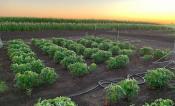
Can we make photosynthesis more efficient?
RIPE Director Steve Long joined NPR’s The 21st Show to talk about what RIPE is doing to increase photosynthetic efficiency in crops and how it could help fight a climate-induced food crisis.
Produced by: Ryan Andrew Wilde || The 21st Show

Canola establishment under the scope
With investment from the Grains Research & Development Corporation (GRDC), members across CSIRO, including RIPE’s Jose Barrero, are focusing on genetic solutions to help canola breeders.

Christine Raines and Life Sciences Technical Team recognized at Essex’s Celebrating Excellence in Research and Impact Awards
University of Essex's Christine Raines was recognized as Research Champion for her outstanding work on improving photosynthesis in crops.

Unique experimental plant growth facility secures £1m grant
This week, the Wolfson Foundation pledged £1 million to support a new state-of-the-art indoor crop growth facility, to be led by RIPE's Professor Tracy Lawson, at the University of Essex.

Hacking Photosynthesis: Bioengineers race to meet global food demands.
“Hacking Photosynthesis” from Codon Magazine features the research of different bioengineers around the world who are racing to meet global food demands and highlights RIPE’s work to amp up photosynthesis.
By: Niko McCarty || Codon Magazine
